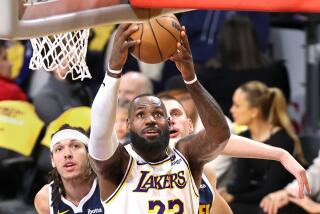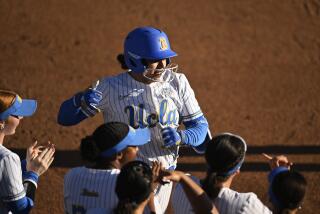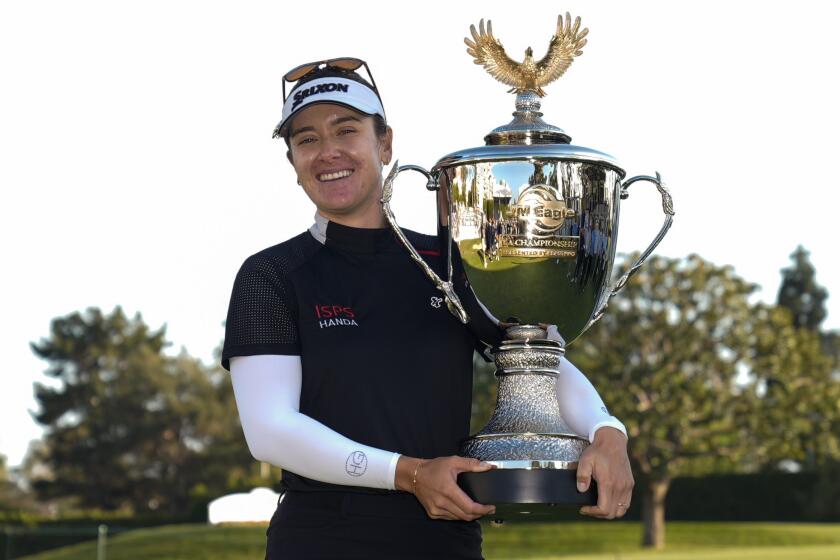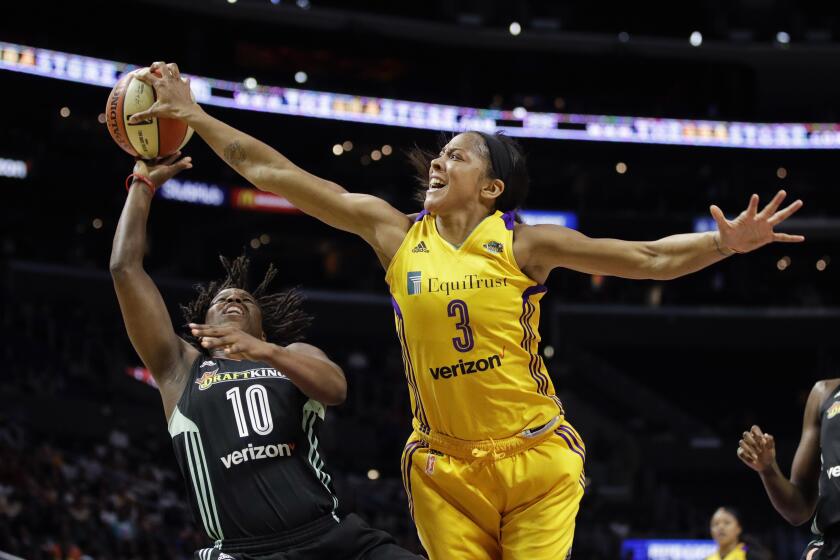New Set of High Stakes for Mississippi State
Mississippi State finds itself thrust into the national spotlight once again, about 30 years later, and today the stakes are a little lower. Only a basketball championship is on the line.
The Bulldogs reached the Meadowlands by beating top-ranked Kentucky, Big East champion Connecticut and scrappy Cincinnati in a span of two weeks, a tough road for any team, and yet a less intimidating one than their predecessors took in 1963.
Back then, the Bulldogs needed separate cars, courage and the cover of darkness to escape the segregated South and play in the NCAA Tournament. In doing so, their all-white squad defied an unwritten state law that barred Mississippi teams from competing against black players. As it happened, the school didn’t make an impact in the ’63 tourney, and never advanced a team beyond the Sweet 16 until now.
But the way of life on the Starkville, Miss., campus and throughout the state was changed forever.
This weekend, Mississippi State has the weakest basketball tradition of the Final Four teams and the most compelling basketball history. The Bulldogs haven’t played in the final as Syracuse did in 1987, they never sent an icon (Julius Erving) to the NBA like UMass, and folks in Mississippi hardly worship college basketball the way they do in Kentucky.
However, none used basketball to change attitudes as Mississippi State did, either.
“At the time,” said Leland Mitchell, the star player for State in ‘63, “we didn’t know the significance of what we did. It didn’t hit us until later.”
In 1959, ’61 and ‘62, Mississippi State won the Southeastern Conference and disrupted the dynasty of Kentucky and its legendary coach, Adolph Rupp. Each time, State declined the automatic NCAA Tournament bid because the tourney had integrated teams.
The story of how Mississippi State’s desire to compete overcame the fierce racial unrest of the Deep South is the athletic equivalent of James Meredith’s enrolling at Ole Miss in the fall of 1962. For perspective’s sake, consider that both of Mississippi’s state universities refused to allow blacks on their major sports teams until the late-Sixties, that mob lynchings and bombings were prevalent at the time, and that Mississippi was the country’s most resistant state when it came to integrating its schools.
“Ross Barnett, who was a staunch segregationist, was governor then,” Mississippi State historian Bob Hartley said Wednesday from Starkville. “That’s all you need to know.”
Hartley was State’s sports information director in the early Sixties and had a front seat when history took a sharp turn. The man who made change possible was Babe McCarthy, the Bulldogs’ hugely successful coach who was frustrated by the limits placed on his team.
McCarthy came to Mississippi State in 1955 and quickly turned around the basketball program. His wisecracking style won over the big recruits and kept them in-state; until then, the best talent crossed the border and played for Rupp. “Babe was like the TV lawyer Matlock,” Hartley said. “Super-warm personality. Everybody loved him.”
Mitchell said: “Babe could motivate you to do almost anything.”
McCarthy couldn’t persuade state politicians to allow State to play in the NCAAs, however, and for three years he simmered while Kentucky went to the tournament in the Bulldogs’ place. The school president at the time, fearing a reduction in school funds and contributions, refused to defy the state code. But when State hired an outsider as the next president, McCarthy saw his chance.
When the Bulldogs finished with a No. 6 national ranking and won the SEC again in ‘63, President Dean Colvard announced the school would accept the NCAA bid. However, on March 13, just days before the Bulldogs were scheduled to meet Loyola of Chicago in East Lansing, Mich., in the Mideast Regional, the state senate secured an injunction to block the move and prohibited the team from leaving Mississippi.
“The players all wanted to play,” Mitchell said. “We didn’t care what color our opponents were. We wanted to go to the tournament.”
The next day, McCarthy, Colvard and other school officials met at the president’s office to contemplate their next move. Word of the meeting soon leaked, however, so the party moved to the country home of a school official.
At nightfall, sheriff’s deputies went knocking on the homes of McCarthy and Colvard to serve the injunctions. Meanwhile, many miles away, both men were busy drawing up ways to get the team north to Michigan as quietly as possible.
“It was a real cloak-and-dagger operation,” Hartley said. “All the plans were laid out and instructions were given. You know, ‘You go here, you move there.’ The only thing is we didn’t know what the opposition was doing.”
The “opposition” in this case was the resisting forces. Hartley said none of the men feared for their lives, yet they didn’t feel entirely safe, either. After all, those opposing segregation sometimes were chased from their homes and beaten or even killed.
That night, McCarthy and Colvard left town in separate cars to avoid the injunction. The next morning, the team was split into two groups: reserves and starters. The reserves went to the airport, and if nothing happened, the starters would join them. A sheriff waited at the airport but couldn’t serve the injunction because neither McCarthy nor Colvard was with the team. The players boarded the plane, which stopped in Nashville, Tenn., to pick up McCarthy before heading to East Lansing.
“We were treated as conquering heroes when we arrived,” Hartley said. “We became the sentimental favorites in the tournament.”
Mitchell said the Bulldogs were greeted warmly by Loyola, which had four black starters. But that’s where the hospitality ended. Loyola beat State by 10 and went on to conquer two-time defending champ Cincinnati for the NCAA title.
The sense of history seems lost on this year’s Mississippi State team, too young to comprehend what took place more than 30 years earlier. The parents of today’s players probably hadn’t met when Babe McCarthy snuck his team out of state. Even Richard Williams, the current coach who enrolled at State in the fall of ‘63, seems oblivious to it all.
“I don’t remember that as being any big deal,” Williams said this week.
But some won’t ever forget.
“They knew they were under pressure,” Hartley said about the ’63 squad, “but I think they handled it well. I felt the same about this year’s team. We were loose at the regionals, and that’s why we’ve been able to perform so well.”
More to Read
Get our high school sports newsletter
Prep Rally is devoted to the SoCal high school sports experience, bringing you scores, stories and a behind-the-scenes look at what makes prep sports so popular.
You may occasionally receive promotional content from the Los Angeles Times.






